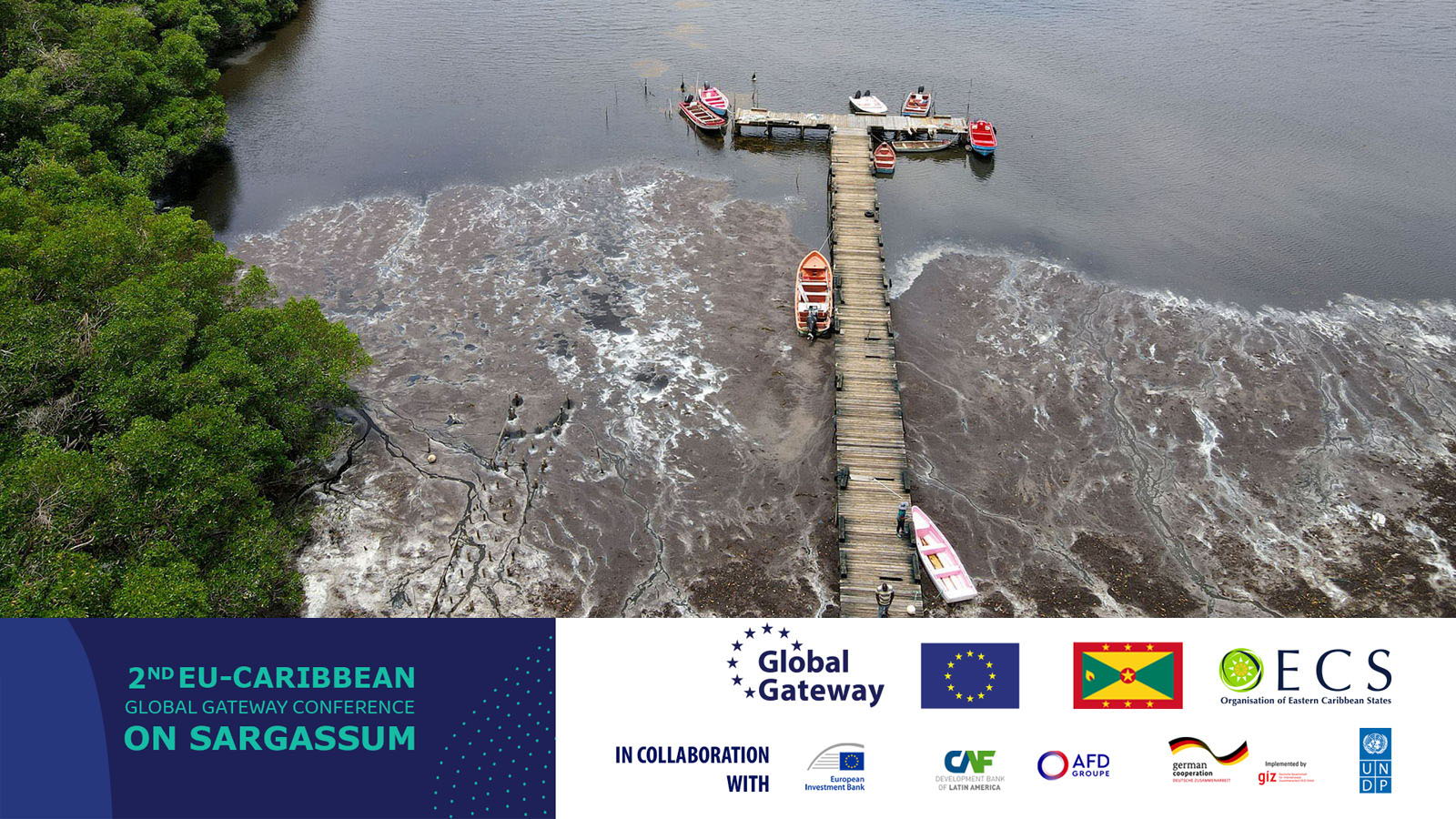Grenada to Host 2nd EU-Caribbean Global Gateway Conference on Sargassum – October 1-2
Joint Press Release - European Union and the OECS
The 2nd EU-Caribbean Global Gateway Conference on Sargassum takes place on October 1-2, 2024, at the Radisson Grenada Beach Resort. The Conference is an initiative aimed at addressing the growing environmental and socio-economic impact of sargassum seaweed across the Caribbean Basin. It also seeks to build regional capacity, attract investment, and promote innovation to transform this environmental challenge into sustainable economic opportunities.
The Conference is being held as the Caribbean region continues to grapple with unprecedented amounts of sargassum washing ashore, impacting beaches, disrupting marine ecosystems, and threatening key economic sectors, particularly tourism and fisheries. Sargassum influxes have far-reaching consequences for the region’s coastal economies and communities. It will offer an exceptional platform for fostering dialogue, mobilizing action, and securing investment in sustainable solutions.
The conference will generate a comprehensive conversation to understand the building blocks of a sustainable value chain: Research and Innovation, Enabling Environment and Transformation. The event will explore the latest on research, monitoring and forecasting, prevention and containment, collection and harvesting, treatment, valorization and/or use, and disposal of sargassum biomass.
The event is set to attract over 250 regional and international stakeholders, including the Prime Minister and Ministers of the Government of Grenada, policymakers, scientists, non-governmental organizations (NGOs), and private sector participants, to address one of the most pressing environmental challenges facing the Caribbean and Latin America – the recurring influxes of sargassum.
According to Prime Minister Dickon Mitchell, "The sargassum issue affects all of us in the region. This conference is a pivotal moment for us to come together as Caribbean countries and key partners to find solutions that turn this environmental challenge into a source of economic opportunity, while safeguarding our coastlines and livelihoods.”
Facing a similar challenge with invasive seaweed species in Europe, the European Union, together with its Member States recognise the importance of local, regional and international partnerships in the fight against the overgrowth of Sargassum. Through its Global Gateway Investment Agenda (GGIA), the EU, a partner in the Sargassum Conference, seeks to enhance investment in the Caribbean, with sargassum as one of the priorities.
The Organisation of Eastern Caribbean States (OECS), an event partner, welcomes this initiative with the EU, a long-standing and committed international partner to continue the drive towards finding solutions to this ever-increasing problem and to implement joint strategies.
Under the theme, ‘Turning the Tide: Sustainable Practices and Economic Opportunities for Sargassum in the Caribbean Basin,’ key Speakers at the event will include the Prime Minister of Grenada, the Honourable Dickon Mitchell; Honourable Kerryne James, Grenada’s Minister for Climate Resilience, the Environment and Renewable Energy; Mr Felix Fernandez-Shaw, Director at the European Commission’s, Directorate-General for International Partnerships; and Dr. Didacus Jules, Director General of the Organisation of Eastern Caribbean States (OECS), along with representatives from public authorities across the Wider Caribbean Basin.
Danny Moonie
OECS Communications Unit
.jpg)